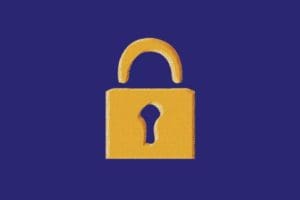Today President Obama announced three major initiatives designed to safeguard student digital data. While many specifics have yet to be announced, these initiatives are important and exciting, highlighting both the incredible potential of education data and technology to support student success and also the need to effectively safeguard these data. In a statement, DQC’s Founder and Executive Director Aimee Rogstad Guidera said, “We are pleased that President Obama and the administration are prioritizing the safeguarding of student data. Everyone who has a stake in education has a role to play in ensuring that we protect the personal information of our students as we use data to personalize learning and help our young people achieve their goals.”
Here’s a quick look at the White House’s proposed initiatives and how they could each play a unique and complementary role in safeguarding student data:
Legislation
The president spoke about releasing the Student Digital Privacy Act, a legislative proposal based on last year’s Student Online Personal Information Protection Act (SOPIPA) from California, which would ensure data collected in an educational context are used only for educational purposes.
SOPIPA seeks to prevent the commercialization of student data by online service providers and targeted advertising while still permitting the full array of educational activities that harness the potential of education data and technology in service of student learning. While schools, districts, and states must safeguard student privacy by implementing clear policies and practices, service providers also bear a critical responsibility to protect students’ data. By directly governing the activities of service providers, SOPIPA (and the president’s proposed Student Digital Privacy Act) seek to increase clarity and accountability around how service providers protect student data.
Self-Regulation
The president praised the Student Privacy Pledge (an FTC-enforceable, industry-led commitment to safeguard student data privacy developed by the Future of Privacy Forum and the Software & Information Industry Association) and challenged other education technology service providers to sign on as well.
Because they develop the services and technologies being used in the classroom, industry representatives have a unique role to play in creating data use standards that prioritize privacy and allow innovation. Many education technology leaders have stepped up to the plate to take responsibility for the privacy, security, and appropriate use of the student data they collect and store. The expertise and commitment of industry is critical to implementing robust but flexible standards and to building trust and transparency with educators and the public around how data are used and shared.
Resources
The president announced the development of new tools from the US Department of Education’s Privacy Technical Assistance Center. The new resources will include a model terms of service and teacher training assistance.
While privacy policies and legislation are key tools for ensuring student data are used appropriately, they alone are not sufficient. Educators are the front line of using data and technology to help their students and also of safeguarding their privacy. The field cannot leave educators to meet these crucial responsibilities by themselves. Educators need high-quality, comprehensive training and supports on how to use education data and education technology effectively and ethically. To use education data appropriately, teachers must be data literate (i.e., able to access, interpret, act on, and communicate multiple types of data to improve outcomes for students). When teachers have these skills, they are empowered to harness the incredible power of education data to personalize their instruction, reflect and improve on their own practice, and support each of their students.
As President Obama announced these three initiatives, he stressed the need “keep seizing the possibilities of an Information Age, while protecting the security and prosperity and values that we all cherish.” Today’s initiatives, which focus on both the opportunities and challenges of using education data and technology, coupled with the ongoing efforts of states, districts, and industry, place all of these diverse values within reach.


